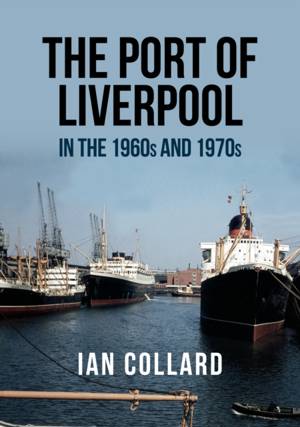
Bedankt voor het vertrouwen het afgelopen jaar! Om jou te bedanken bieden we GRATIS verzending (in België) aan op alles gedurende de hele maand januari.
- Afhalen na 1 uur in een winkel met voorraad
- In januari gratis thuislevering in België
- Ruim aanbod met 7 miljoen producten
Bedankt voor het vertrouwen het afgelopen jaar! Om jou te bedanken bieden we GRATIS verzending (in België) aan op alles gedurende de hele maand januari.
- Afhalen na 1 uur in een winkel met voorraad
- In januari gratis thuislevering in België
- Ruim aanbod met 7 miljoen producten
Zoeken
Omschrijving
In the 1960s and 1970s, many of the traditional shipping companies trading or based in Liverpool slowly vanished because of containerisation or competition from passenger aircraft. Many of these shipping lines had been in operation since the early years of the nineteenth century and had provided links with the outposts of the Empire and the developing independent countries of the Commonwealth. They had been established in the days of sailing ships and had survived the transition from sail to steam and had provided a lifeline to the country in the difficult days of the First and Second World Wars and the Great Depression of the 1930s. With a fascinating collection of newly unearthed photographs, shipping historian Ian Collard documents this important period of transition in the history of one of the world's most famous ports.
Specificaties
Betrokkenen
- Auteur(s):
- Uitgeverij:
Inhoud
- Aantal bladzijden:
- 96
- Taal:
- Engels
Eigenschappen
- Productcode (EAN):
- 9781445681412
- Verschijningsdatum:
- 15/09/2018
- Uitvoering:
- Paperback
- Formaat:
- Trade paperback (VS)
- Afmetingen:
- 165 mm x 231 mm
- Gewicht:
- 317 g

Alleen bij Standaard Boekhandel
+ 44 punten op je klantenkaart van Standaard Boekhandel
Beoordelingen
We publiceren alleen reviews die voldoen aan de voorwaarden voor reviews. Bekijk onze voorwaarden voor reviews.









